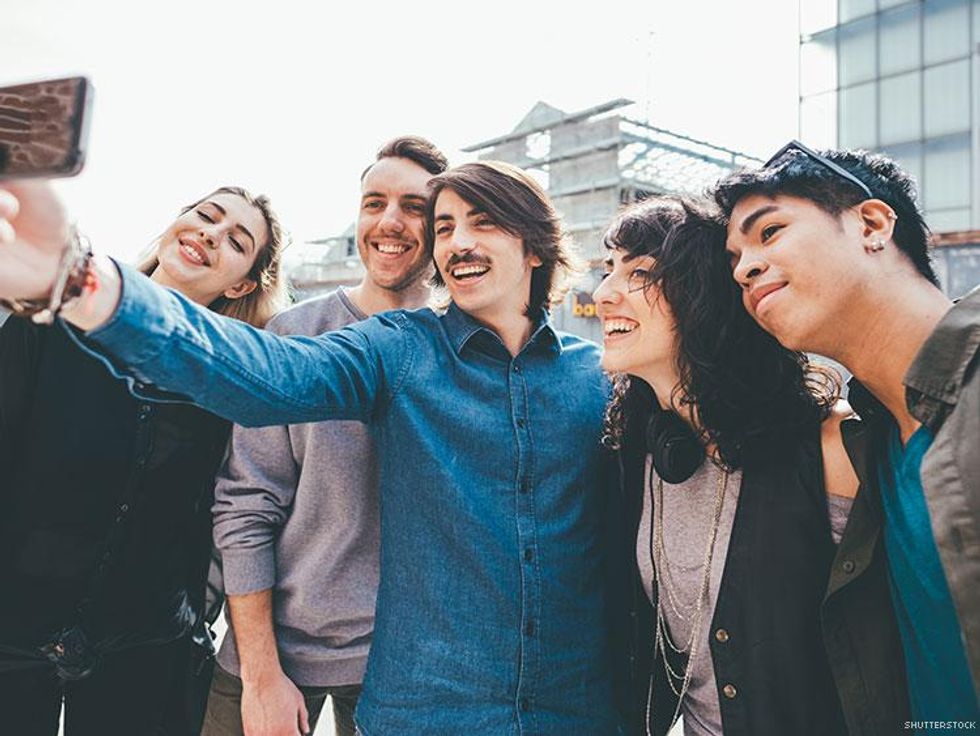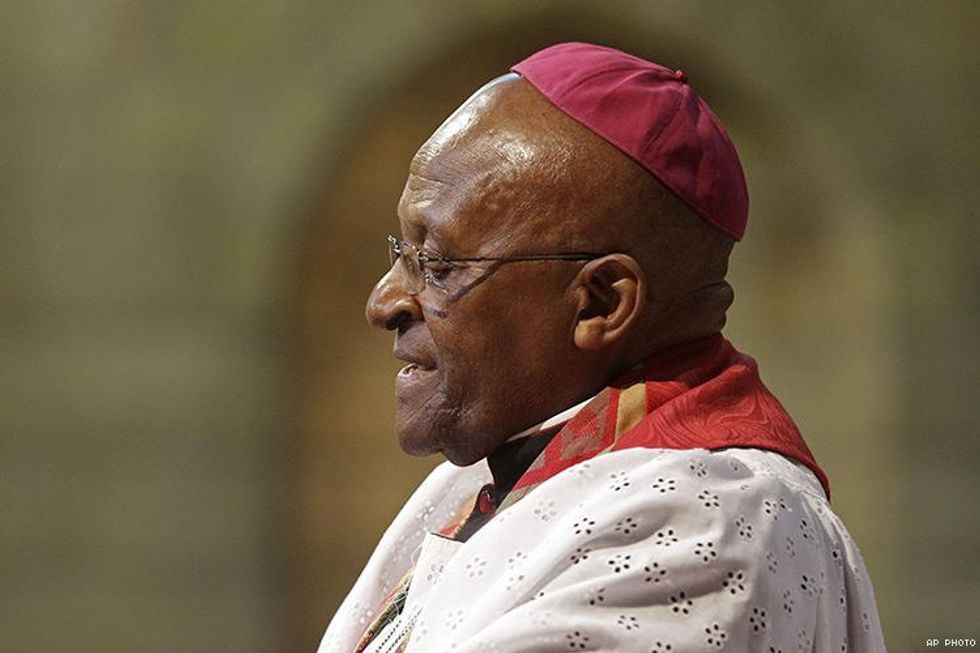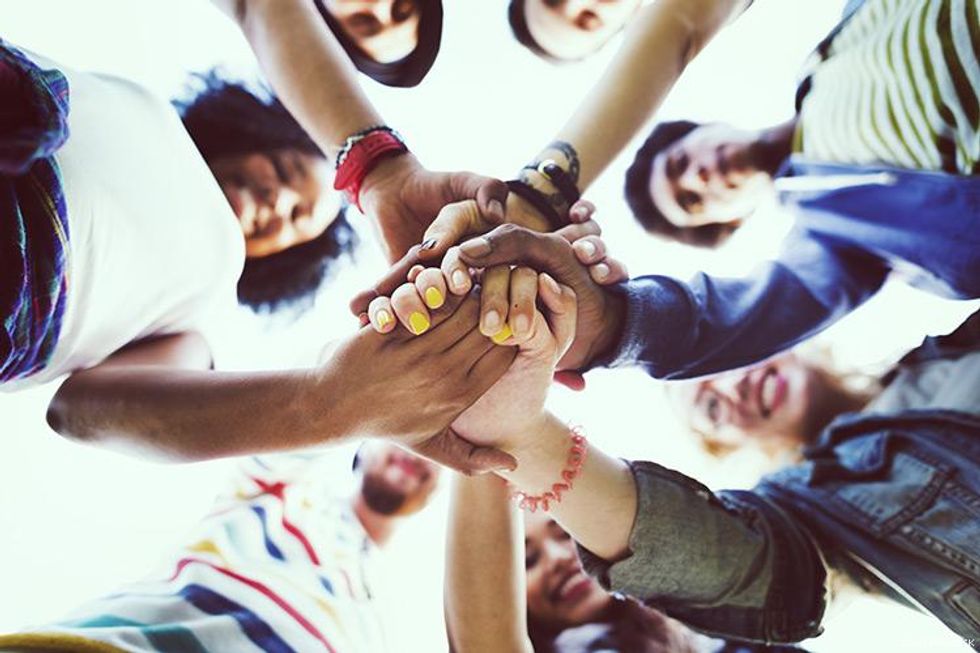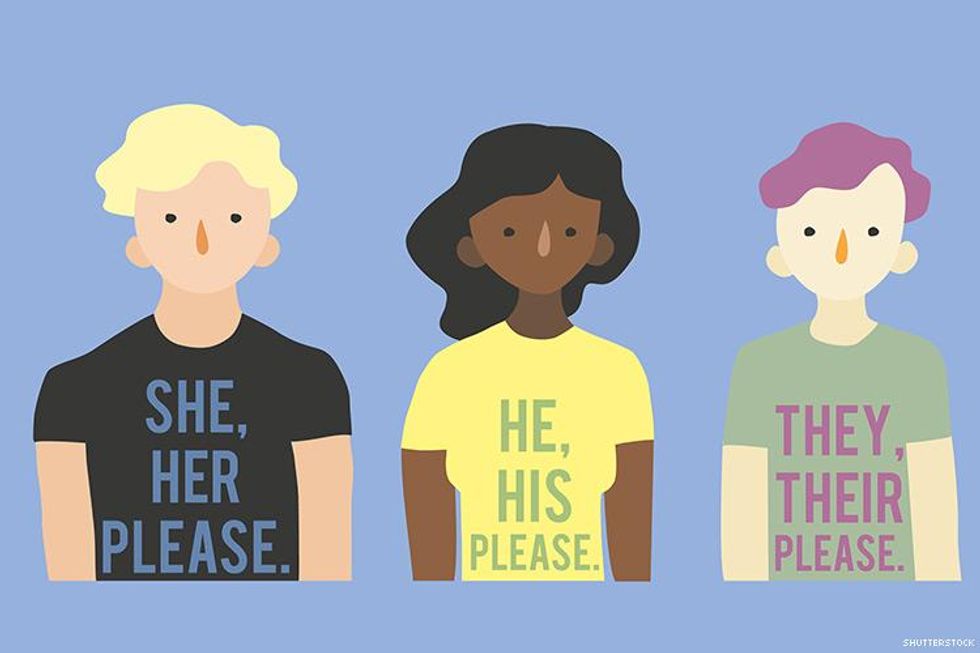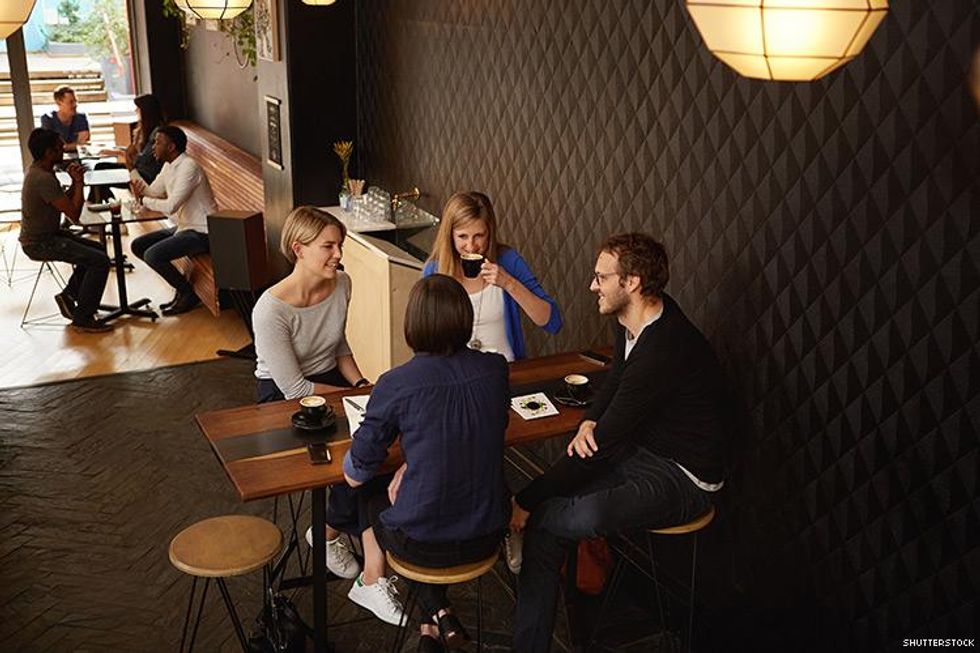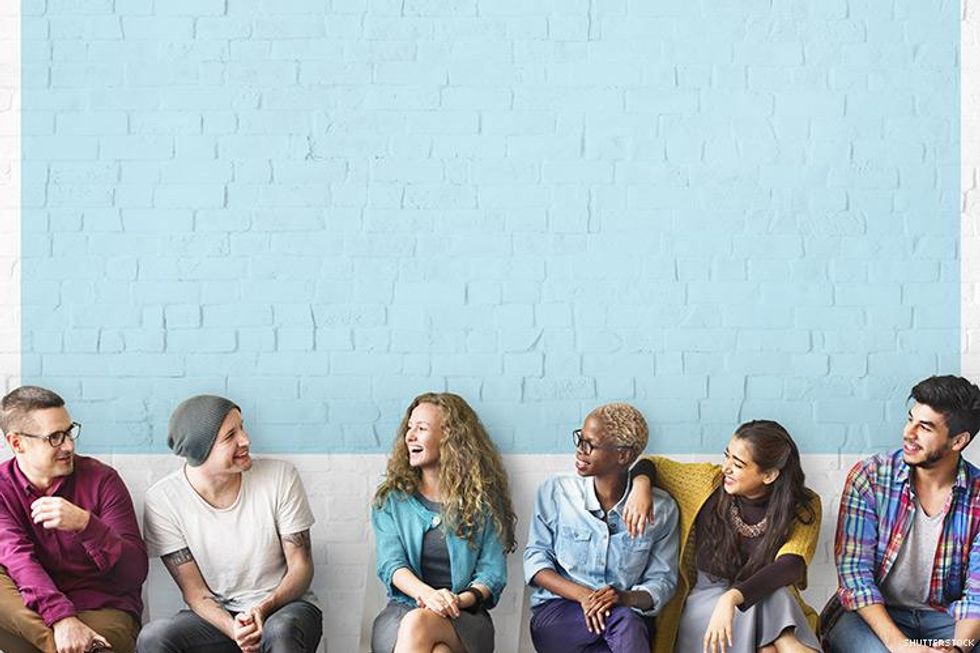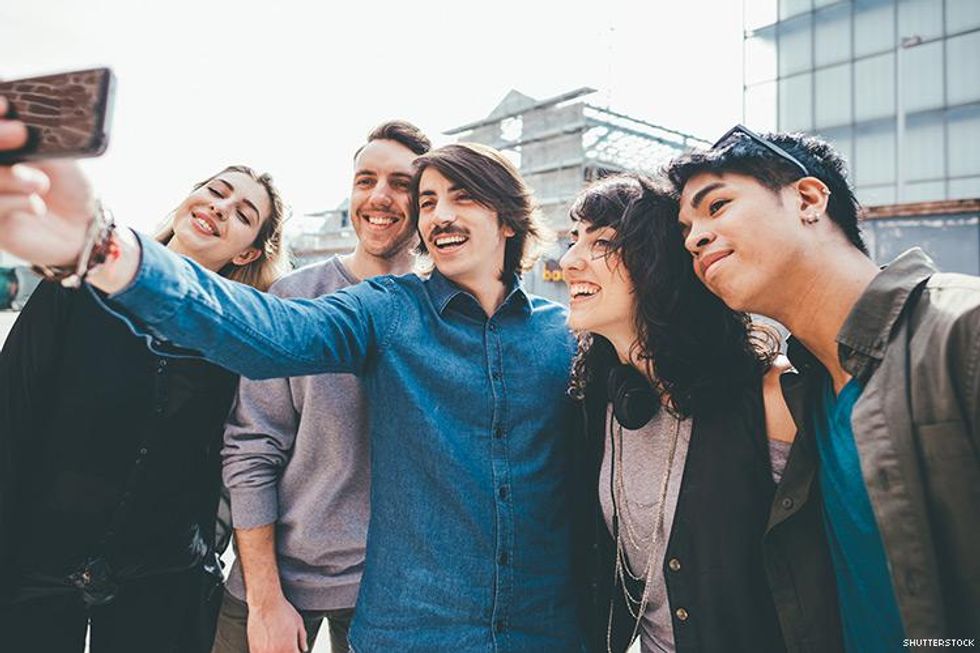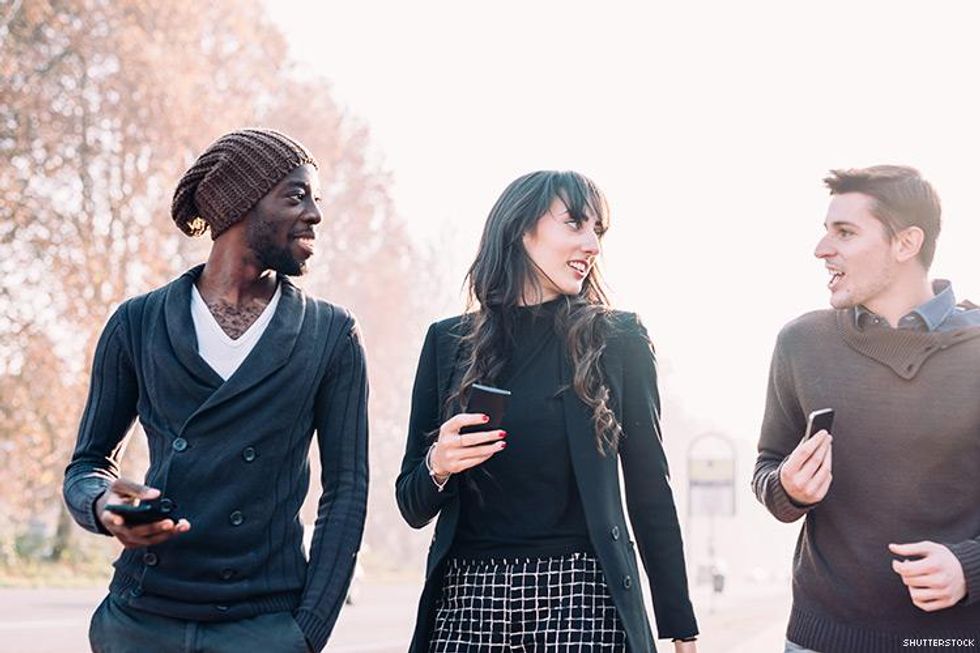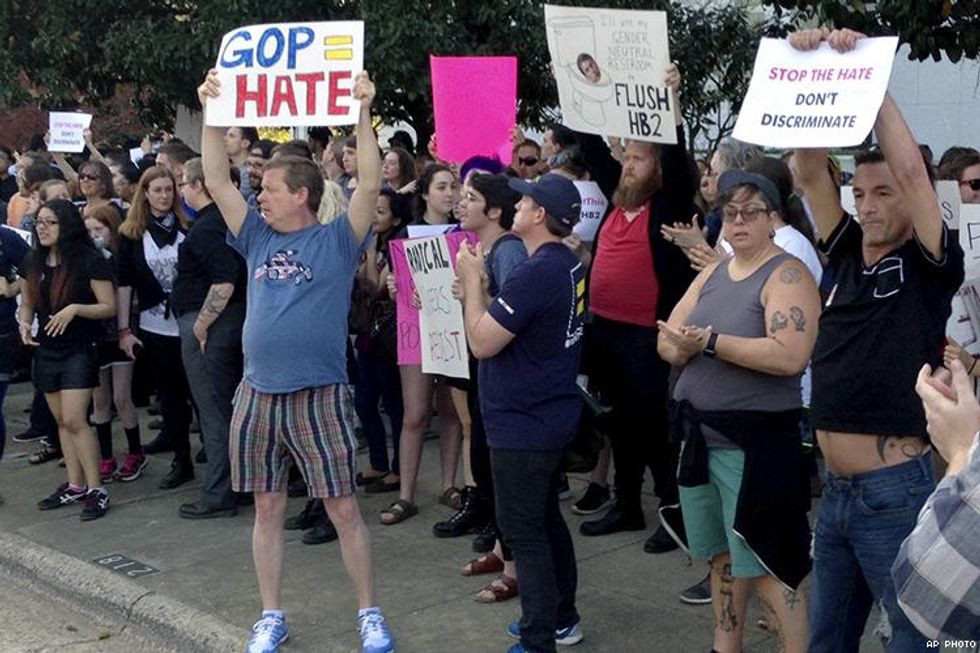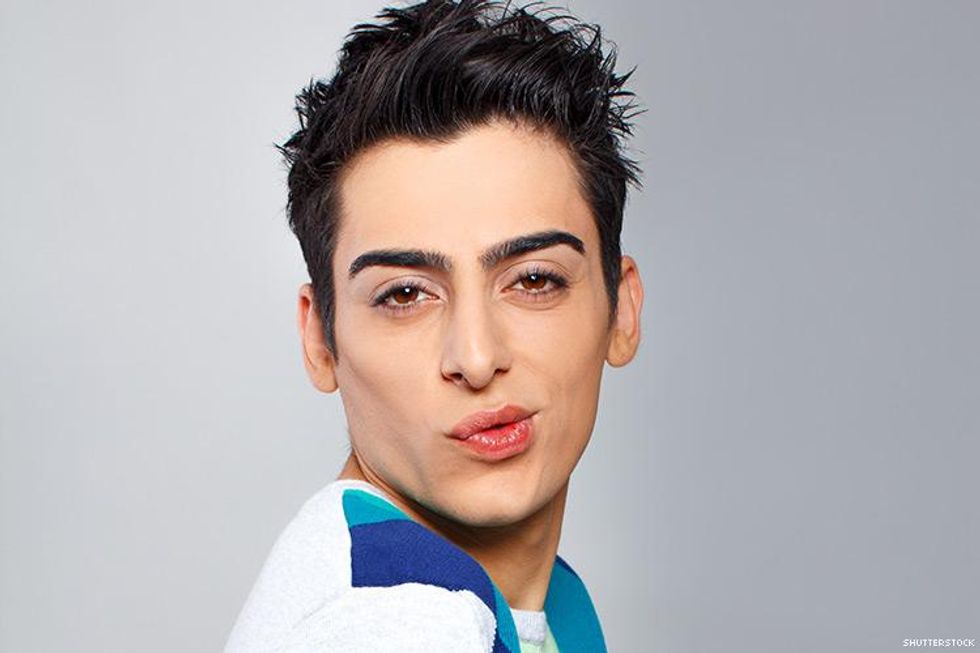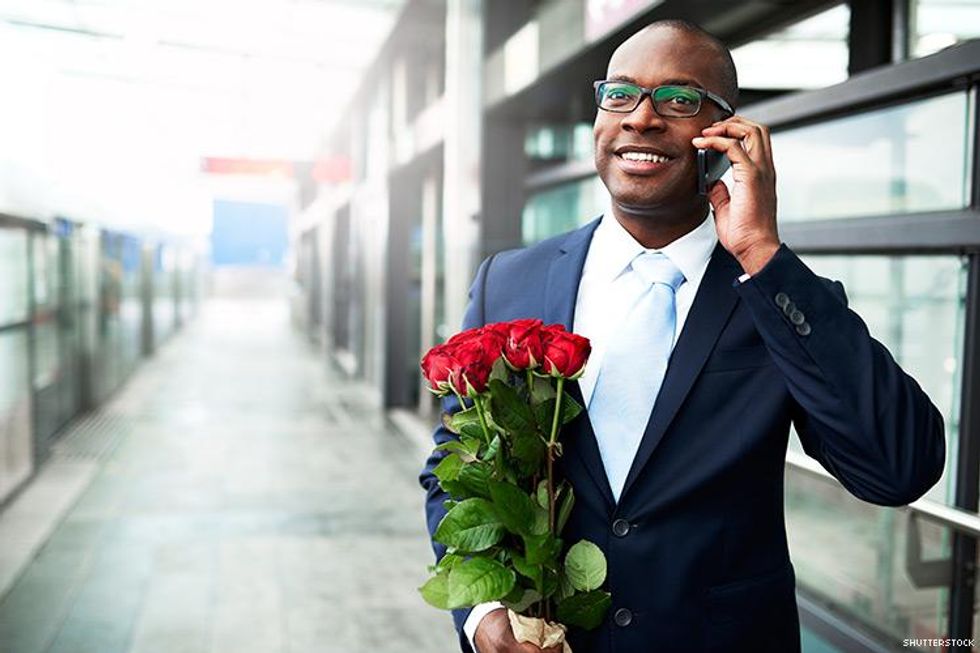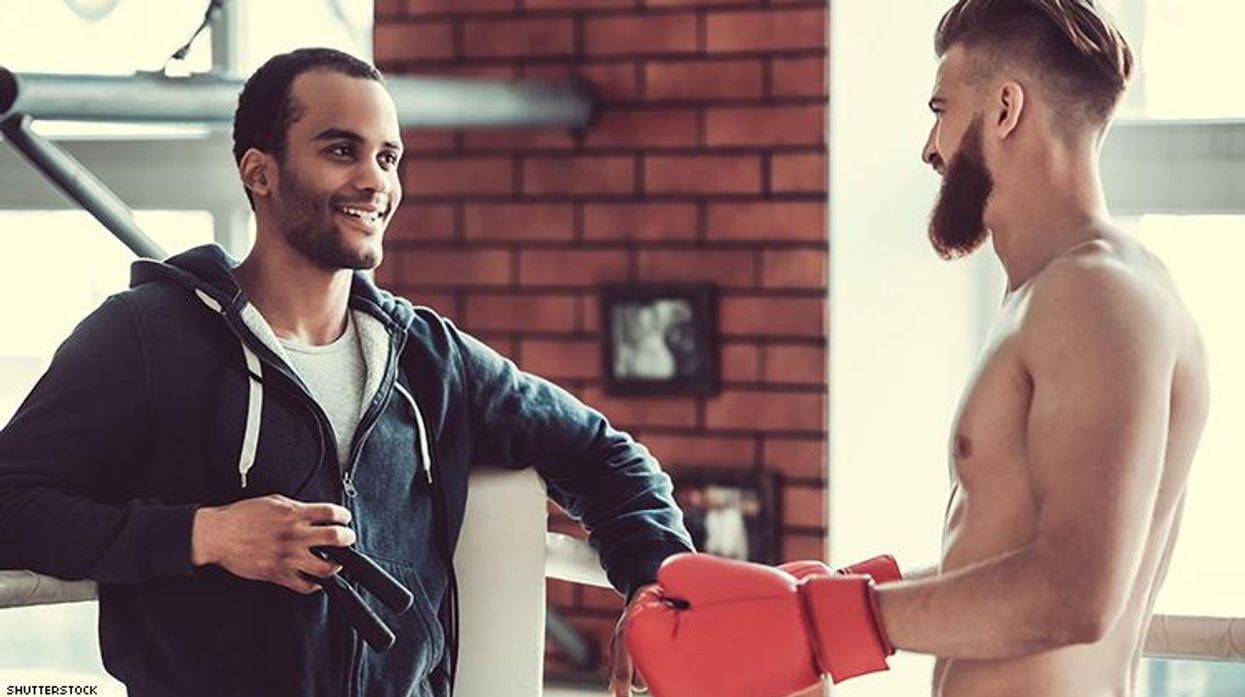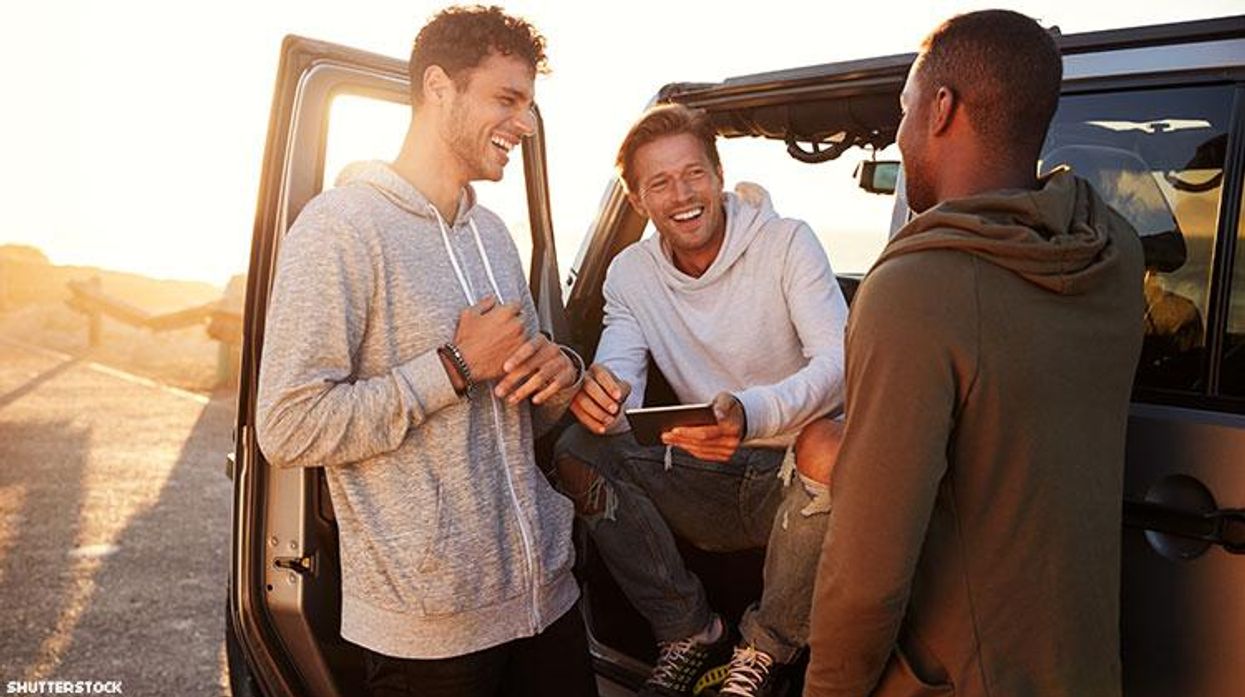Donald Trump and Mike Pence have effectively promised to write anti-LGBT discrimination into law. Gay men, alongside all queer people, face dark and frightening days under President Trump. But I fear most for trans folk, who have been heavily bullied by the Republican Party this past year with transphobic "bathroom bills." Gay and bi men: It's time to be trans allies.
I was nervous to write this piece because many writers, myself included, believe that literature about trans folk should only be written by trans folk. This belief is held because trans stories have so often been silenced, blocked, and appropriated by cisgender people. Would I want to read a piece from a straight writer about why straight people should support gay men? Maybe, but I'd go into it with tension. They would invariably be comparing their experience to mine, placing themselves on one side of a fence and me on the other.
And yet I need straight allies. Every gay man does. I would not be here without them. Gay men, now is the time to stop, once and for all, the transphobic jokes. Stop deadnaming or misgendering Caitlyn Jenner, even if you disagree with her politics. It's time to face the fact that,regardless what happens in the United States, we are witnessing a global awakening -- an enlightening of what it means to be human, and a discarding of antiquated beliefs that collectively compose "gender." This is the transgender movement.
Browse these 13 ways you should be a better trans ally. Come together in the coming days, months, and years as one queer family. Our bonds, rather than our differences, are more important now than ever before.
1. Remember this quote.
"If you are neutral in situations of injustice, you have chosen the side of the oppressor." -- Desmond Tutu
2. Check your male privilege.
What does it mean -- really -- to "check one's privilege"?
It's a buzz phrase on Tumblr and among socially progressive millennials, and as such it gets mocked by nearly everyone. But checking your privilege is more than important -- it's necessary.
To check your privilege is to acknowledge the ways your features -- your skin color, your gender, your wealth -- have aided you and given you a privileged place in the systems of thought that dominate and pervade nearly every aspect of our world. Systems like patriarchy and self-policing. Systems like societal gender roles and gender politics.
These systems are oppressive in nature because they dictate that some people -- particularly able-bodied, cisgender, white heterosexual men -- will fare better in most parts of the world than others, simply because of traits at birth that cannot change.
Gay men (both cis and trans): It's time we checked our male privilege, something we benefit from by presenting male in a patriarchy. (If you seriously think we don't think we live in a patriarchy, a sexist man just beat a woman for leader of the free world.)
Trans women suffer from misogyny and patriarchy perhaps worse than any other group. This year broke the record as the bloodiest year for transphobic violence, particularly against trans women. As allies to all women, we must not stand for this, particularly when our upcoming president believes he can so freely assault them.
3. Use your privilege -- to foster safe spaces and push for policy change.
I benefit from white, able-bodied, and cisgender male privilege. The people who raised me are upper-middle-class. Whether or not I would attend college was never a question -- the money to do so was always there, waiting. I passed through the world immensely privileged before ever realizing that, because of institutionalized racism and misogyny, others with far more potential for success than me would have to work harder with less comfort and less cushion than I had.
Use your privilege, especially in the days ahead. Be a safe space. If you have spare money to donate to LGBT organizations doing good work, do it. If there is an LGBT community center in your town, volunteer. If you can help an uninsured HIV-positive person pay for their meds (a frightening reality in an America with Mike Pence at the helm), do it. Speak out against transphobic violence, and demand that your peers do the same.
4. Ask people you meet for their preferred pronouns.
It's easy. Just ask "Pronouns?" before making assumptions.
5. Listen to trans stories.
Listen to the stories of trans folks. Share your own.
I believe that, beyond the particulars, most human stories are universal. The only people who know what it's like to be trans are trans folk -- they are the only authorities on their experiences. But the things they feel in life are not exclusive to them, because human feelings are not singular: We all pass through the world with fear, desire, isolation, confusion, and loss. Gay men in particular should be automatic allies, since we share in living on the fringe and the sidelines of culture. I am not trans, but when I speak with my trans friends about our high school experiences, we realize that we all felt alone and different.
More beautifully, we all recall the moments we "became." The moment I first looked in the mirror and saw myself as a gay man, then the moment a few years later when I first stepped out in leather at the Folsom Street Fair, were not unlike the moment a friend of mine first started seeing the results of testosterone in the mirror and thought, This is me. Most every queer person has their "becoming" moment, the instant when suddenly those years of waiting and closeted fear come to an end and you step out, and it feels right. If you haven't had that moment yet, you will someday, my darling, and I will be cheering for you.
6. Recognize and celebrate our queer family.
I am not trans, but I see trans folks as next-door neighbors on the queer spectrum. Together, we are two separate demographics within the larger body of "queer people" -- "queer" here being a term that, despite its not-too-distant history as a slur, is now understood by most branches of LGBT media to mean "nonhetero and outside the heteronormative."
I personally feel that "queer" means more than that -- that it can also be understood as a label to define oneself that is intentionally vague and fluid in the way it resists a hard gender presentation or sexual orientation. But as an umbrella term, I have no word in my lexicon beyond "queer" to define that beautiful, elusive, nonhetero "us."
That "us" has been bullied by patriarchy, "gender," gender politics, and countless systems of belief that have been around since the advent of agriculture or the rise of monotheism (depending on who you ask). Basically, a long damn time.
Gay men and trans folk share common bullies, but that is hardly what unites us. Trans culture overlapped at one point with drag culture and house/ball culture (and still does). This culture was historically sustained by black and Hispanic queer men and trans women, who historically share higher HIV rates, which thus makes them overlap with my community, HIV-positive folks. Together we all overlap into each other's terrain -- I didn't even mention leather and circuit subcultures -- without ever sharing the same identities. The labels we use change and overlap, but our identities are no less authentic, historic, and bonded. In politics, we have long been grouped together (at the frustration of some) as that gay-ish "other" -- see now where the word "queer" becomes useful?
We're here. We're queer. Some of us are trans. Some of us are gay. Some of us are gay and trans. We're all family.
7. Stop misgendering trans folks.
If you know someone's identity, your only reason for misgendering them is to be transphobic and cruel. Even if you disagree with Caitlyn Jenner's political opinions, you do not have the right to misgender her in an angry Facebook comment. Seriously, stop.
8. Love completely -- even if you don't understand.
"We can love completely without complete understanding."
This line comes from the 1992 film A River Runs Through It. It's a movie quote that comes into my head whenever I fail to understand my parents or Republicans or religious people -- in other words, all the time. I have no doubt that my parents, Republicans, and religious people all fail to understand me.
Our world would be a much better and kinder place if we all remember that line whenever failing to understand each other.
You might not understand the transgender movement. You might not understand trans identities. There are plenty of trans folk in the world who will eloquently and beautifully explain their identities to you, but no one can make you listen and understand, particularly if you are closed off to listening and understanding. No one can force you to forward your consciousness. You have to do that.
However, you can fully love others without understanding them. That is your job as a decent human being.
9. When people make mistakes on terminology, teach them.
Call-out culture creates bullies -- except when it works to stop bullying. If a person is meanly making a transphobic joke, call them out on it. Tell them that's not OK and won't be tolerated.
If someone sincerely doesn't know that the word "tranny" is offensive, take a deep breath before you launch into an angry tirade. Are they making an effort? Are they speaking kindly? Some people are simply unsure of what to say and must be taught.
Teaching and communicating with someone is a far better tactic than attacking them -- an important lesson we all need to stomach (myself included) if we want Trump-Pence to be the last hurrah from an angry, white, anti-intellectual populace. Communicating across differences is not my strong suit -- I'm a liberal elitist with no problem saying "You're an idiot" and calling it a day. But I believe that attempts to peacefully extend a hand are more likely to be met with positive results than shouting. Teach people how to speak and they will be more likely to say the correct words.
10. Accept that the trans movement is happening -- and it's big.
Think about the institutions that cisgender gay men, lesbians, and bisexuals had to fight (and are still fighting) in order to gain traction in their fight for rights. At different points throughout this history we gay men have ridden the coattails of male privilege to win. At other times we have relied on the public's view of heterosexual relationships in order to make necessary pleas for our own. The cultural idea that opposite-sex relationships are ideal goes back a long time -- every major world faith enforces them -- but we all have heard of times and pockets of history in which culture discarded that idea. Same-sex relationships are hardly new on the global history timeline.
Now look at gender, which must be seen as a separate battle. Changing the way the world defines gender is a bigger battle, because while not everything is straight vs. gay, everything is gendered, from clothes to language to household amenities.
Trans folk are not new -- a cursory history lesson will teach you that. But teaching the world to understand gender more fluidly, recognize gender as a social construct, and understand the gender binary as an oppressive system of thought will require lots of patience, fierce eloquence, and fearlessness. Trans folks are leading the charge, living their truths fearlessly. The least you can do is support them.
11. Support feminine men.
Hi, kids! Want to see how gender is oppressive? Here's a good place to start.
Feminine men get shamed because they do not conform to behaviors our culture deems "male" or "masculine." This is the oppression of "gender roles" -- societal constructs that determine how one must behave based on one's identity. Fighting gender roles helps everyone, including and especially trans, genderqueer, intersex, nonbinary, and two-spirit folk.
How do you support feminine men? Stop writing fucking Grindr profiles that read "Masc4Masc" or "Masc Only." Stop putting people you don't know in a box and closing yourself off to them by making blanket decrees of disinterest based on this or that characteristic. Doing so makes you no better than Grindr racists who write things like "Whites Only," "No Asians," etc. -- and who, in the wake of this election, are really the only guys online worth getting blocked.
Note: Trans women are women. Feminine men are men (unless they identify as something else -- queer, etc.). But the people who make cruel jokes about trans women being "men in dresses" are so caught up in the idea that gender is fixed that they refuse to understand the concept of "gender identity," and that same obstinate, stubborn, transphobic refusal that so often holds hands with misogyny (and that some say simply is misogyny) translates to fem-shaming -- something I'm tired of seeing among gay men. We must do better.
Every Grindr profile that reads "Masc4Masc" is a stab at feminine men. No one wants to be refused for characteristics they cannot change and shouldn't have to -- I learned that quickly when I first put my HIV-positive status online and started seeing "Neg4Neg" on profiles and realized they were refusing me. It hurts every time.
12. Stop saying you won't date a trans guy.
When gay guys say they won't ever date a trans guy, my first question is "Why?" Anytime someone makes sweeping statements about an entire group of people that they refuse to date, it looks like racism, sexism, transphobia, poz-phobia, or a general closed-mindedness. If you only date people who are just like you, then your dating life is going to be boring as fuck.
13. Use inclusive language.
Many people not much older than me remember "queer" as a deeply offensive slur. It's not my place to tell anyone how to feel about a word, but "queer" as a device does a useful job. As an all-encompassing umbrella label, it's more inclusive than "the gay community" -- a right-wing media favorite -- which erases and ignores all other parts of the acronym and typically refers only to gay men.
If you can't bear "queer," consider "LGBT," "LGBT+" or "LGBTQ+." This is good shorthand for the full acronym (currently: LGBTQQIP2SAA).
Let's face it: The full acronym, as our understanding of these words, will change. Words evolve. That's less a fact of our community and more of a basic feature of language. If this is reading too much like a Julia Kristeva essay (leave it to a person whose nickname is "Beastly" to dip into semiotics), let me simply say this: Labels are tools, not cages. We use them to help us, not inhibit us or cause division. Be more inclusive with the words you use.


